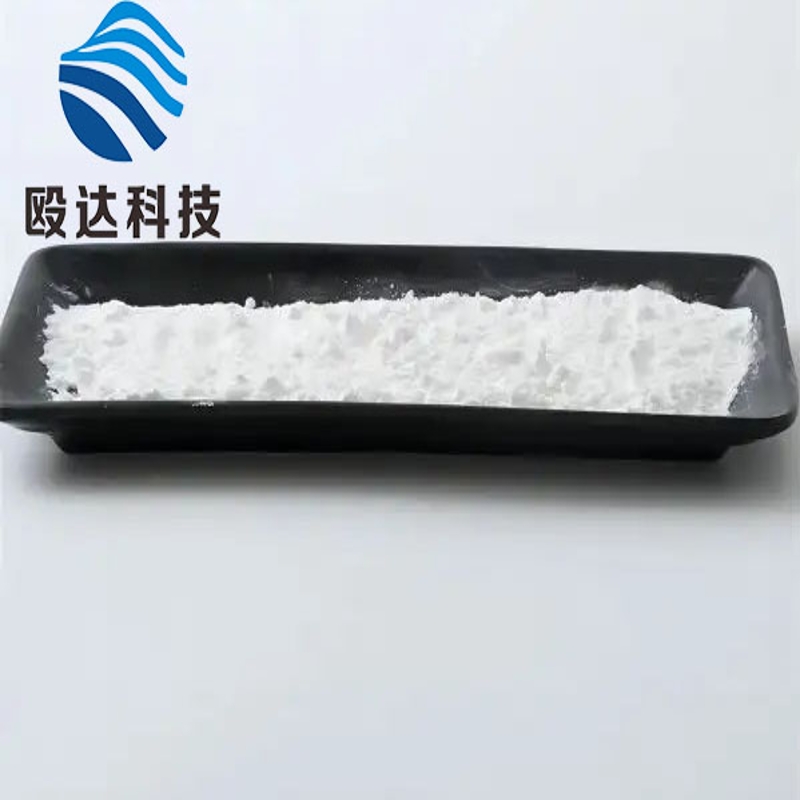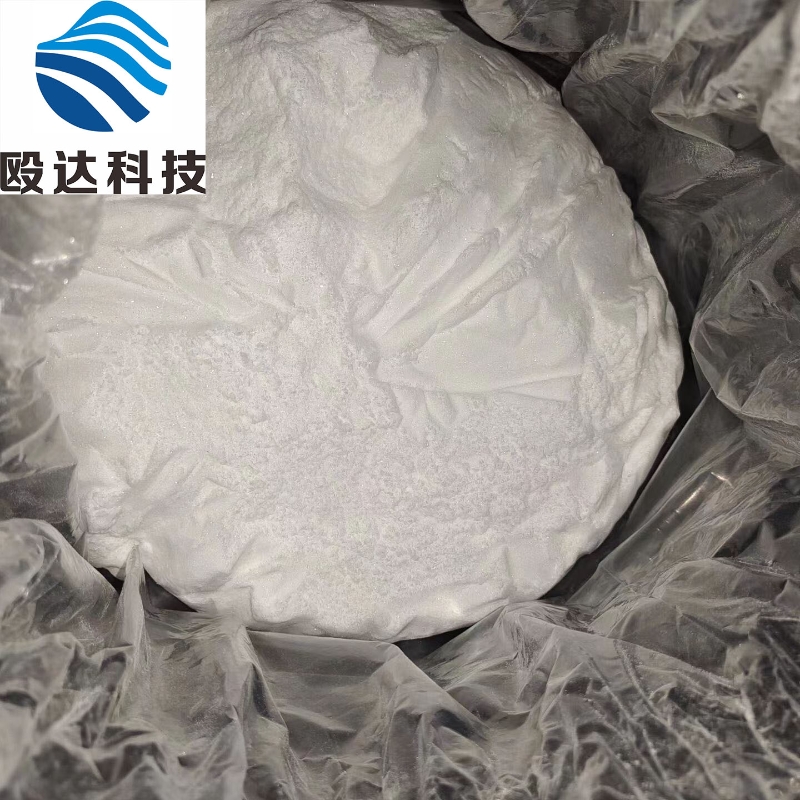-
Categories
-
Pharmaceutical Intermediates
-
Active Pharmaceutical Ingredients
-
Food Additives
- Industrial Coatings
- Agrochemicals
- Dyes and Pigments
- Surfactant
- Flavors and Fragrances
- Chemical Reagents
- Catalyst and Auxiliary
- Natural Products
- Inorganic Chemistry
-
Organic Chemistry
-
Biochemical Engineering
- Analytical Chemistry
- Cosmetic Ingredient
-
Pharmaceutical Intermediates
Promotion
ECHEMI Mall
Wholesale
Weekly Price
Exhibition
News
-
Trade Service
.
Vitamin D in the body mainly in the form of 25-hydroxyvitamin D3 present in the blood, there are many studies indicate that vitamin D may itself immune to some of the diseases associated with existence
Bone effects of vitamin D:
01 promote intestinal calcium-binding proteins synthesized mucosa, intestinal mucosa to increase the absorption of calcium, increases the absorption of phosphorus
02 increases to proximal renal tubular calcium and phosphorus absorption weight, elevated blood calcium levels, increase bone density
03 Directly act on bone mineral metabolism, promote bone matrix formation and bone-like mineralization
Vitamin D's immunomodulatory effect
01 Reduce the antigen presentation activity of macrophages to lymphocytes
02 Inhibit the differentiation of monocytes into myeloid dendritic cells, B cell proliferation, plasma cell differentiation, antibody production, and the synthesis of a variety of cytokines, including interleukin (IL)-12, IL-1\ IL-6 and tumor necrosis factor-α (tumor necrosis factor-α, TNF-α)
.
03 Induces the activation of regulatory T cells and natural killer cells, increases the apoptosis induced by dendritic cells and T lymphocytes, and produces IL-4, IL-5 and IL-10
Vitamin D immunityThe role of vitamin D
The role of vitamin DBone effects of vitamin D:
The skeletal effect of vitamin D : The skeletal effect of vitamin D : The skeletal effect of vitamin D:01 promote intestinal calcium-binding proteins synthesized mucosa, intestinal mucosa to increase the absorption of calcium, increases the absorption of phosphorus
01 promote intestinal calcium-binding proteins synthesized mucosa, intestinal mucosa to increase the absorption of calcium, increases the absorption of phosphorus02 increases to proximal renal tubular calcium and phosphorus absorption weight, elevated blood calcium levels, increase bone density
02 increases to proximal renal tubular calcium and phosphorus absorption weight, elevated blood calcium levels, increase bone density03 Directly act on bone mineral metabolism, promote bone matrix formation and bone-like mineralization
03 Directly act on bone mineral metabolism, promote bone matrix formation and bone-like mineralizationVitamin D's immunomodulatory effect
The immunomodulatory effect of vitamin D The immunomodulatory effect of vitamin D The immunomodulatory effect of vitamin D01 Reduce the antigen presentation activity of macrophages to lymphocytes
01 Reduce the antigen presentation activity of macrophages to lymphocytes02 Inhibit the differentiation of monocytes into myeloid dendritic cells, B cell proliferation, plasma cell differentiation, antibody production, and the synthesis of a variety of cytokines, including interleukin (IL)-12, IL-1\ IL-6 and tumor necrosis factor-α (tumor necrosis factor-α, TNF-α)
.
.
Inhibit the differentiation of monocytes into myeloid dendritic cells, B cell proliferation, plasma cell differentiation, antibody production, and the synthesis of a variety of cytokines, including interleukin (IL)-12, IL-1\IL -6 and tumor necrosis factor-α (tumor necrosis factor-α, TNF-α)
03 Induces the activation of regulatory T cells and natural killer cells, increases the apoptosis induced by dendritic cells and T lymphocytes, and produces IL-4, IL-5 and IL-10
03 Induces the activation of regulatory T cells and natural killer cells, increases the apoptosis induced by dendritic cells and T lymphocytes, and produces IL-4, IL-5 and IL-10Vitamin D and rheumatoid arthritis
Vitamin D and Rheumatoid Arthritis Vitamin D and Rheumatoid Arthritis Rheumatoid ArthritisRA is a highly disabling chronic inflammatory autoimmune disease.
Studies have shown that the level of vitamin D in peripheral blood is closely related to rheumatoid arthritis (RA).
Articular cartilage cells, synovial cells, and synovial cells are found in RA lesions.
Vitamin D receptor (VDR) is expressed on macrophages
.
Active vitamin D combined with specific intracellular VDR can not only regulate bone calcium and phosphorus metabolism and improve osteoporosis , but also, as a hormone-like substance, can inhibit inflammatory cytokines such as interleukins through dendritic cells and T and B lymphocytes The synthesis of (IL)-17, interferon-γ, etc.
, promote the secretion of anti-inflammatory cytokines, and participate in the immune regulation of RA patients
.
The synthesis of interleukin (IL)-17 and interferon-γ promotes the secretion of anti-inflammatory cytokines and participates in the immune regulation of RA patients
.
Vitamin D deficiency is common in RA patients.
Studies have pointed out that increasing the intake of vitamin D can delay the occurrence and development of RA and have a positive impact on the control of RA
.
Therefore, the use of vitamin D to prevent or treat RA has a broad space
Vitamin D deficiency is common in RA patients.
Vitamin D and Ankylosing SpondylitisVitamin D and Ankylosing Spondylitis
Vitamin D and systemic lupus erythematosus
Vitamin D and systemic lupus erythematosus-
Active vitamin D can inhibit the maturation of antigen-presenting cells (APC) in SLE patients and inhibit the expression of major histocompatibility complex (MHC-Ⅱ) II, CD40 and CD86, thereby reducing the immunostimulatory effect of SLE patients and suppressing antigens Antibody production
. -
Active vitamin D also to maintain the immune homeostasis , variation and suppress DC activation in SLE patients, and the inhibitory activity of IFN-α
.
-
Active vitamin D can reduce Th1 and Th17, B cells and anti-DNA antibodies in patients with systemic lupus erythematosus, while inhibiting the maturation of SLE DCs and hindering the progression of systemic lupus erythematosus
.
Active vitamin D can inhibit the maturation of antigen-presenting cells (APC) in SLE patients and inhibit the expression of major histocompatibility complex (MHC-Ⅱ) II, CD40 and CD86, thereby reducing the immunostimulatory effect of SLE patients and suppressing antigens Antibody production
.
Active vitamin D can inhibit the maturation of antigen-presenting cells (APC) in SLE patients and inhibit the expression of major histocompatibility complex (MHC-Ⅱ) II, CD40 and CD86, thereby reducing the immunostimulatory effect of SLE patients and suppressing antigens Antibody production
.
.
Active vitamin D also to maintain the immune homeostasis , variation and suppress DC activation in SLE patients, and the inhibitory activity of IFN-α
.
Active vitamin D also to maintain the immune homeostasis , variation and suppress DC activation in SLE patients, and the inhibitory activity of IFN-α
.
Active vitamin D also to maintain the immune homeostasis , variation and suppress DC activation in SLE patients, and the inhibitory activity of IFN-α
Active vitamin D can reduce Th1 and Th17, B cells and anti-DNA antibodies in patients with systemic lupus erythematosus, while inhibiting the maturation of SLE DCs and hindering the progression of systemic lupus erythematosus
.
.
How to supplement vitamin D?
How to supplement vitamin D? How to supplement vitamin D? China Adult Vitamin D is mainly assessed by 25 (OH) vitamin D .Reference value 25 ≥ 50nmol / L OHD 25 , 50 ~ 70 nmol / L of vitamin D deficiency .
There are three ways to source 50~70nmol/L vitamin D:
01 homology wavelength ultraviolet sunlight of 296 ~ 310nm, stored within the base layer skin irradiating the skin 7 - dehydrogenation of cholesterol into vitamin D i.
e.
cholecalciferol
.
02 exogenous namely intake of foods containing vitamin D
.
However, the content of vitamin D3 in natural foods is low.
For example, liver contains 15-50 IU/kg, breast milk and milk contain 3-40 IU/L, and egg yolk contains 25 IU/L, but they cannot meet the needs of the body.
03 Maternal-fetal transfer means that the fetus can obtain vitamin D from the mother through the placenta, and the storage of 25-hydroxyvitamin D in the fetus can meet the growth needs for a period of time after birth
.
In summary, not only should patients be encouraged to get vitamin D from food, but also patients should be encouraged to do more outdoor exercises and sunbathe more (beware of sunburn), which can help strengthen muscles and bones
.
In addition, vitamin D preparations can also be taken orally, such as alpha calcidiol soft capsules and calcitriol capsules
.
(400IU(10ug)/d is recommended for adults, 600IU(15ug)/d for the elderly, 800-1200IU/d for osteoporosis).
Summarize
Summary summary vitamin D plays an important role in immune regulation in rheumatic diseases, it is closely related to the occurrence of many autoimmune diseases, development.
Low vitamin D levels are common in many rheumatic diseases
.
Not only the disease itself, but drugs can also affect the metabolism of vitamin D during the treatment of the disease, such as glucocorticoids, hydroxychloroquine, and immunosuppressants
.
Most scholars believe that without causing hypercalcemia without causing hypercalcemia , the use of vitamin D, VDR agonists and vitamin D derivatives adjuvant therapy control in favor of rheumatism
.
It is of great significance to the prevention of autoimmune diseases
.
references
references[1]Sun Mingshu, Wang Jibo.
The role of vitamin D in the treatment of rheumatoid arthritis [J].
Clinical Convergence, 2004,19(016):930-931.
The role of vitamin D in the treatment of rheumatoid arthritis [J].
Clinical Convergence, 2004,19(016):930-931.
[2]Yeap, Swan Sim, Hew, Fen Lee, Damodaran, Premitha, etc.
A summary of the Malaysian Clinical Guidance on the management of postmenopausal and male osteoporosis,2015[J].
Osteoporosis &Sarcopenia,2016,2(1): 1-12.
A summary of the Malaysian Clinical Guidance on the management of postmenopausal and male osteoporosis,2015[J].
Osteoporosis &Sarcopenia,2016,2(1): 1-12.
[3] Yang Chaoju, Geng Ruili, Cui Jia, etc.
Serum 25-hydroxyvitamin D3 levels in patients with systemic lupus erythematosus and its relationship with autoantibodies.
[J].
Journal of Clinical Hematology.
, 2018, 31(2): 99 -101
Serum 25-hydroxyvitamin D3 levels in patients with systemic lupus erythematosus and its relationship with autoantibodies.
[J].
Journal of Clinical Hematology.
, 2018, 31(2): 99 -101
[4] Low vitamin D linked to higher risk of renal disease in lupus.
Medicalxpress.
November 5, 2017.
Medicalxpress.
November 5, 2017.
[5] Rafael Giovani Misse, Isabela Bruna Pires Borges, et al.
Effects of Exercise Training on Endothelial Function, Arterial Structure, and Physical Conditioning in Patients with Systemic Autoimmune Myopathies: A Case Series Study[J].
Scientific Research,2019,5 .
Effects of Exercise Training on Endothelial Function, Arterial Structure, and Physical Conditioning in Patients with Systemic Autoimmune Myopathies: A Case Series Study[J].
Scientific Research,2019,5 .
[6] Liao Xiangpeng, Zhang Zengli, Zhang Honghong, Zhu Hanmin, Zhou Jianlie, Huang Qiren, Wang Zhixu, Wang Liang, Liu Zhonghou.
Vitamin D and Adult Bone Health Application Guidelines (2014 Standard Edition) [J].
Chinese Journal of Osteoporosis ,2014,20(09):1011-1030.
Vitamin D and Adult Bone Health Application Guidelines (2014 Standard Edition) [J].
Chinese Journal of Osteoporosis ,2014,20(09):1011-1030.
Leave a message here







